Introduction to the life and writing
of a rare saint
In 2001, the cover of a Jehovah Wintess booklet caught my eye. I wouldn't normally have paid much attention to anything these people published, but I was intrigued by the illustration of a Nazi concentration camp and the claim that the JW's had done what other Christian groups had not done, i.e. opposed Hitler. (Among other things, early on they published for all the world to know what was going on in the secret concentration camps, including hand drawn illustrations smuggled out of the camps). Ever since then I have read extensively about the role of the churches and found it shocking to learn that in a country that was 98% Christian at the time, most of the churches did more to help than to hinder Hitler. He didn't get the millions of people he needed to do his dirty work from Mars, but from the pews of nations that were overwhelmingly Christian, and some even more Catholic than Germany.
For years Catholics have defended their church on the ground that it was powerless to do better. Now, a long-forgotten footnote of history is emerging to prove otherwise. Thanks largely to the work of the American scholar, Gordon Zahn, the world is now becoming aware of a simple Austrian farmer and church sexton who saw plainly what most of his church superiors could not see, i.e. that it was inconceivable for people who claimed to be followers of Jesus to co-operate with the clearly monstrously immoral Nazi regime. Nothing his priest, bishop, or even pope said could persuade him to dismiss what he had learned from Jesus :
"Whoever wishes to save his life will lose it; but whoever loses his life for My sake will find it. For what will it profit a man if he gains the whole world and forfeits his soul? " (Matthew 16:24-25) and "If your hand or your foot causes you to stumble, cut it off and throw it away; it is better for you to enter life maimed or lame than to have two hands or two feet and to be thrown into the eternal fire. " (Matthew 18:8).
During the entire 12 years of the Third Reich, Franz was one of only seven individual Catholic "conscientious objectors". Although he is now being considered for canonization for his stand, at that time he and the other six - which included a priest - were pressured by their church leaders to do their duty and obey Hitler, as millions of other Catholics were doing and even denied the sacraments for not doing so . Here's the inspiring story of one man who deserves, in my humble opinion, to be canonized if ever there was one :
Franz was born in 1907 "out of wedlock" and only after his father died in WW I was his mother married and Franz given the name of his step-father. Although his entire formal education consisted of only eight years in the same one room school house, he read voraciously thereafter. After being exposed for a time to Communists while working in a mine, he returned to his home town to work his step-father's farm. Following his marriage to a very devout Catholic wife, he became even more devout than he had been before.
When Germany swallowed up his beloved Austria, everybody else in his town voted to approve the annexation to Nazi Germany, but not Franz. When he was first drafted, he went for training, but then his conscience wouldn't allow him to participate in what he had come to view as a totally unjust and immoral war. Franz told the Nazi authorities that he would be willing to serve, if he could do so as a medic. But, when they rejected this compromise, and he told the civil and religious authorities who tried to persuade him to "do your duty" that he must obey God's law rather than man's. After being held for five months in a Berlin prison, and going through several trials and confrontations, Franz was finally executed (by guillotine) on Aug. 9, 1943.
Most of what follows are inspiring and insightful excerpts from the book
Franz Jagerstatter, Letters and Writings from Prison".
(I will using this blue text & font to make it easy to differentiate between my occasional comments, and the excerpts from the book, which will be in black font. And I will italicize the actual words of Franz himself.)
"On Today's Issue: Catholic or National Socialist ?"
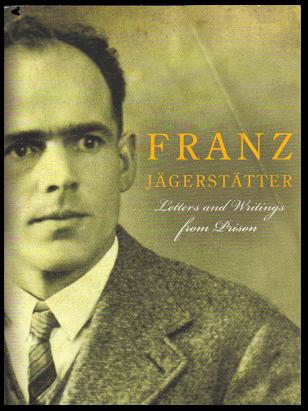 "They also were aware of the anti-Nazi writings of the bishop of Linz, Johannes Maria Gfollner, who in 1933 had stated in a pastoral letter read aloud in every parish of the Linz diocese: "Nazism is spiritually sick with materialistic racial delusions, un-Christian nationalism, a nationalistic view of religion, with what is quite simply sham Christianity." The racial purity so dear to the Nazis was condemned by Bishop Gfollner as "a backsliding into an abhorrent heathenism.... The Nazi standpoint on race is completely incompatible with Christianity and must therefore be resolutely rejected." In 1937, four years later, he declared, "It is impossible to be both a good Catholic and a true Nazi."
"They also were aware of the anti-Nazi writings of the bishop of Linz, Johannes Maria Gfollner, who in 1933 had stated in a pastoral letter read aloud in every parish of the Linz diocese: "Nazism is spiritually sick with materialistic racial delusions, un-Christian nationalism, a nationalistic view of religion, with what is quite simply sham Christianity." The racial purity so dear to the Nazis was condemned by Bishop Gfollner as "a backsliding into an abhorrent heathenism.... The Nazi standpoint on race is completely incompatible with Christianity and must therefore be resolutely rejected." In 1937, four years later, he declared, "It is impossible to be both a good Catholic and a true Nazi."
There were many bishops who spoke out against Nazism before 1933, but very few who continued to do so after 1933, a year which, as I show at the year of Great Upheaval, was a crucial period for Germany and the entire world.
"By 1941, (after Gfollner's death) Linz had a new bishop, who was to speak much more cautiously.
. . . Franz even managed to meet with the bishop of Linz, Joseph Fliesser, successor to Bishop Gfollner. A list of questions Franz had written down in preparation for the encounter has survived. Franz asked :
- if it was not sinful to support an ideology (Nazism) whose goals included eradicating Christianity;
- if "the predatory raids" that Germany was making in various countries could be regarded as acts of "a righteous and holy war";
- how is it possible for the church, in burying the remains of German soldiers killed in the war, to permit its priests to describe the fallen as heroes and even saints;
- would it not be truer to regard as heroes those who defended their homelands rather than those who invade other countries;
- could the church regard as righteous and good whatever the crowd happens to be shouting; and, finally,
- can one be both a soldier of Christ and a soldier of Nazism, thus both fighting for the victory of Christ and his church while at the same time fighting for the victory of Nazism?
When Franz came out of the bishop's consulting room, Franziska (his widow) recalls that he "was very sad and said to me: 'They don't dare commit themselves or it will be their turn next.' "
|
In later years, Bishop Fliesser said, "In vain, I explained to him the basic principles of morality concerning the degree of responsibility that a private person and citizen bears for the actions of those in authority, and reminded him of his far higher responsibility for those within his private circle, particularly his family." It was, in fact, . . . widely believed that any sins you commit under obedience to your government are not your personal sins but are regarded by God as the sins of those who lead the state. God would judge the leader, not those who had obeyed his orders. (This was the Catholic Church's idea of "moral theology" in those days!)
But for Franz it seemed obvious that, if God gives each of us free will and a conscience, each of us is responsible for what we do and fail to do, all the more so if we are consciously aware we have allowed ourselves to become servants of evil masters. Franz later made the compassionate observation that "the bishop has not experienced the grace (and thereby the responsibility) that has been granted to me."
In a notebook entry Franz made early in 1942, he remarks, "They [the bishops and priests] are human beings of flesh and blood as we are, and they can be weak. Perhaps they are even more tempted by the evil foe than we are. Perhaps, too, they were too little prepared to take on this struggle and decide for themselves whether to live or to die."
One important factor in helping people keep their distance from Nazism was the widespread awareness that the Nazi movement was only a degree less hostile to Christianity than the Bolsheviks in Soviet Russia. Nazis regarded the values of the New Testament with contempt and saw those who attended church as stupid and weak. In Germany, they knew, Christians found themselves living in a steadily tightening noose of restrictions.
. . . On March 12, 1938, the Eighth Army of the German Wehrmacht had crossed the German-Austrian border. Assisted by the local Nazi movement and supported by the vast majority of the Austrian population, German troops quickly took control of Austria, then organized a national plebiscite on April 10 to confirm the union with Germany. With few daring to vote against what had already been imposed by military methods, the annexation (Anschluss) of Austria by Germany was even ratified by popular ballot. Austria, now an integral part of the Third Reich, ceased to exist as an independent state. What had been Austria was renamed Ostmark.
Well before the Anschluss, Franz had been an anti-Nazi, but the event that brought his aversion to a much deeper level was a remarkable dream he had in January 1938 (which will be related below). Perhaps it was triggered by a newspaper article he had read a few days earlier reporting that 150,000 more young people had been accepted into the Hitler Youth movement.
The dream seemed to Franz a clarifying message from heaven. The Nazi movement with its racism, its cult of violence, its elimination of those members of society regarded as unfit, its efforts to suppress Christianity was satanic. It was nothing less than a gateway to hell.
I doubt that Franz saw the work of the famous Jewish artist below, but he saw the evils of the Nazi regime in much the same way.
[ http://www.szyk.org/world-war-ii ]
When, however, just a month later, on April 10th, Austria's overwhelmingly Catholic population was asked in a nationwide plebiscite if they approved of Adolf Hitler's annexation of their country into greater Germany, 99.75% answered "Ja", One good reason that so few of his fellow Catholics agreed with Franz is that they had all been instructed by the highest R.C. authority in Austria, Cardinal Archbishop of Vienna Theodor Innitizer to embrace the Fuerher as their new leader.
On 15 March, after visiting Hitler, the archbishop of Vienna, Cardinal Theodor Innitzer, addressed the following directives "to the Catholic clergy and to faithful Catholics in the archdiocese of Vienna and Burgenland":
I. Those who are entrusted with souls (clergy) and the faithful(laity) will unconditionally support the great German State and the Führer, because the historical struggle against the criminal illusion of Bolshevism and for the security of German life, for work and bread, for the power and honor of the Reich and for the unity of the German nation, is obviously accompanied by the blessing of Providence (sic).
2. The exclusive mission of priests is to care for souls [... they] must remain at a distance from politics and await with trust the development of events.
3. Faith and the intimate union of souls gives Christians the conviction that the natural community of the nation is called upon to realize a divine idea, and it follows that a truly religious life presupposes the practice of national virtues.
4. I urge the heads of youth organizations to promote membership in the German Reich's youth organizations.
"The Church will not regret its fidelity to the great German state." This statement (apparently made at that time) by the Führer is a guarantee that the true mission of the Church can be fulfilled. And so Catholics in their totality serve in the best way the good of the Reich, the nation, and the fatherland.
On 27 March, a collective declaration by the Austrian episcopacy, dated 18 March, was read "in all the Churches on Austrian territory":
We joyfully acknowledge that the National Socialist movement has done and is still doing eminent work in the domain of national and economic construction as well as in the domain of social policy, for the Reich and the German nation, and notably for the poorest strata of the population. We are also convinced that the activity of the National-Socialist movement has averted the danger of an all-destroying atheistic Bolshevism.
For the future, the bishops confer their heartiest blessing on this activity, and they will instruct the faithful to this effect.
On the day of the plebiscite, it goes without saying that it is for us a national duty, as Germans, to vote for the German Reich, and we also expect all believing Christians to demonstrate that they know what they owe to their nation."
On April 1st, Cardinal Theodore Innitzer expressed to Cardinal Adolf Bertram, the president of the Fulda conference (of ALL of the R.C. Bishops of Germany), his hope that German bishops would rally to the Austrian episcopacy's dec laration regarding the plebiscite. He added that this declaration must not be "weighed down with restrictive clauses." At the end of this message, the signature of the Austrian primate is preceded by a scandalous, handwritten "Und Heil Hitler!"
On 27 March, a collective declaration by the Austrian episcopacy, dated 18 March, was read "in all the Churches on Austrian territory": ] We joyfully acknowledge that the National Socialist movement has done and is still doing eminent work in the domain of national and economic construction as well as in the domain of social policy, for the Reich and the German nation, and notably for the poorest strata of the population. We are also convinced that the activity of the National-Socialist movement has averted the danger of an all-destroying atheistic Bolshevism.
For the future, the bishops confer their heartiest blessing on this activity, and they will instruct the faithful to this effect.
On the day of the plebiscite, it goes without saying that it is for us a national duty, as Germans, to vote for the German Reich, and we also expect all believing Christians to demonstrate that they know what they owe to their nation.
On April 1st, Cardinal Theodore Innitzer expressed to Cardinal Adolf Bertram, the president of the Fulda conference (of ALL of the R.C. Bishops of Germany), his hope that German bishops would rally to the Austrian episcopacy's declaration regarding the plebiscite. He added that this declaration must not be "weighed down with restrictive clauses." At the end of this message, the signature of the Austrian primate is preceded by a scandalous, handwritten "Und Heil Hitler!"
That same year, in honor of Hitler's birthday, he ordered that all Austrian churches fly the swastika flag, ring their bells, and pray for Hitler. Presumably the cardinal hoped such an action on his part would be repaid by the Nazi regime with a more tolerant attitude toward the church. In fact, following the Anschluss, the situation for Austrian Catholics proved to be even worse than it was for their counterparts in Germany. Many priests were jailed or sent to concentration camps, youth education by the church was all but eliminated, church newspapers were closed, church processions were banned, and, in many parish churches, Mass on important feast days was prohibitted unless the feast fell on a Sunday." . . . .
The Anschluss was only the beginning of a rapid campaign of German territorial expansion. Following the annexation of Austria, Germany occupied the Sudetenland, a region of Czechoslovakia. In March 1939, the rest of Czechoslovakia was taken over. In September 1939, Hitler began the invasion of Poland, at which point Britain and France responded with declarations of war and World War II began. In May 1940, France and the Low Countries were invaded. In June 1941, Germany launched its war on the "eastern front" with the Soviet Union, at the same creating for itself an urgent need for a much larger army." ( pp. xvi-xviii)
Far from encouraging Franz, Fr. Furthauer - a young man who felt unprepared for such a situation - wondered if refusing military service, given that execution was the almost certain penalty, was not the same as committing the mortal sin of suicide.
In later years this same priest wrote to Franz' s widow, Franziska, "I wanted to save his life, but he did not want any pretense and rejected all falsehood. I often pray that Franz Jagerstätter may forgive me." ( pp xviii-xix)
"A very important question today is this: can someone be both a Catholic and a National Socialist? When the (liberal) Social Democrats stood at Austria's helm, the church told us that a Social Democrat could not also be a Catholic. [ Editor: During the 1920's and into the '30s Austria's Social Democratic Party pursued a moderate socialist agenda. For this reason, church officials accused this party of being "Bolshevist" or "Communist". Letters were read aloud in all the churches to publicize the hierarchy's views.] And now?
Franz doesn't spell it out, but he may have been thinking of the 'Solemn Declarations" of the Austrian episcopate which we quoted above which were so noteworthy that they were exhibits at the Nuremberg Military Trials.
Th. Cardinal Innitzer Eb.
Fer. Pawlikowski Fb.
S. Waitz, F.Eb.
Miehael Memelauer
Johannes Maria Pfoellner [ Translation of document krauch 92, General Defense exhibit 147' ]
|
During the same month that Hitler's troops were mercilessly crushing Poland (one of the most Roman Catholic countries on earth), this is how the hierarchy recommended that German Catholics respond: |
|
 Sept. 25, 1939 (page 6)
German Soldiers Rallied
------------------------ |
engaged in work for the welfare of refugees evacuated from the western frontier districts. Many cloisters have been transformed into hospitals and the monks and nuns are working under the direction of the Red Cross. |
|
Transcribed verbatim and in full (for better legibility) from microfiche copies of the originals. | |
|
on Pearl Harbor Day, "a day that will live in infamy", the N.Y. Times was reporting that Germany's Roman Catholic hierarchy was urging the faithful to pray that God side with the Nazis, and make Hitler victorious : |
|
 Dec. 7, 1941 (page 33) War Prayer
--------------------------------------------------------- |
"war prayer" which is to be read at the beginning and end of all divine services. |
|
Transcribed verbatim and in full (for better legibility) from microfiche copies of the originals. | |
"I want to begin by describing a short experience that I underwent on a January night in 1938. I initially lay awake in bed until midnight, even though I was not sick. Then I must have fallen asleep for at least a little while, for I saw in a dream a wonderful train as it came around a mountain. With little regard for the adults, children flowed to this train and were not held back. There were present a few adults who did not go into the area. I do not want to give their names nor to describe them. Then a voice said to me, 'This train is going to hell." Immediately it happened that someone took me by the hand, and the same voice said to me: -Now we are going to purgatory.- What I glimpsed and perceived was tearful. If this voice had not told me that we were going to purgatory, I would have judged that I had found myself in hell. Apparently, only a few seconds passed during which I glimpsed all of this. Then I heard a rushing sound and saw a light, and everything went away. I immediately awoke my wife and recounted to her everything that had transpired.
Before that night I could never of course truly believe that the suffering in purgatory could be so great. The train's significance was initially an enigma to me. However, the longer I have thought about the dream, the more clearly this moving train's meaning has dawned on me. It is now clear that this image represents nothing other than National Socialism with all of its distinct organizations, the N.S. German Workers' Party, the N.S.. Public Assistance program, the N.S. Women's Association, the Hitler Youth, and so forth that were breaking in or sneaking in at that time. In other words, the train represents the N.S. Volk community and everything for which it sacrifices and struggles.
Just prior to the dream, newspapers reported that 1 50,000 young Austrians had recently entered the Hitler Youth and hence had joined the N.S. Party. 'Let us consider adults who have property, are civil servants, or manage businesses as well as domestic workers and laborers people who do not belong to one of the N.S. organizations and do not put money into the red containers.These people must face a choice: either membership in the N.S. Volk community along with donations to the red containers is necessary for our sanctification as Catholics, or it is an obstacle to it. If membership is necessary if we want to attain blessedness, then this is a sign that National Socialism has expanded its network of organizations [to include the Catholic Church).
I believe that the German-speaking people never participated as strongly in Christian charitable activities as they are now engaging in the N.S. organizations. Nor were they as ready to contribute their money to church programs.
Nevertheless, it will soon be clear to everyone that a person's donations are not what's most important in the Reich. People can contribute as much as they are supposed to, but their donations will count for nothing if they have not committed themselves to the N.S. Party. For example, the National Socialists have conveyed the true aim of their Winter Help Work (W.H.W.). In the village of Mautern I saw a poster that read: "Your contribution to the W.H.W. is your acknowledgment of the Fuhrer." In other words, by means of the W.H.W., the Fuhrer is testing people to determine who is for him and who is against him.
Prior to Hitler's seizure of power [on January 30, 1933), many bishops in Germany banned National Socialists from receiving communion. But how is it now in the Reich? Many people who are members of the N.S. Party go to the communion rail with peace of mind. Also, their children participate in the Hitler Youth, or they receive instructions from N.S. teachers.
Have the National Socialists now -- after more than two years of bringing about the horrible murders of people adopted a new orientation that would allow and even promote the silence of church officials? Have church officials reached the decision that it is now permissible for Catholics to belong to a party that opposes the church? Have they given a positive evaluation of National Socialism? An ordinary person would surely like to cry out at times. When one reflects even a little on these matters, one wonders whether those who are the most upright (prominent?) in our land are making a mistake. After all of the [church's] warnings, a bloody Christian persecution will not occur in our land because the church does almost everything that the N.S. party wants or commands.
Austria would no longer have many good priests in freedom or in their ministry if its Catholic clergy had stalwartly voted no in the plebiscite of April 10, 1938. Instead, church officials praised the N.S. Party for its many good acts and so helped generate 100 percent support for the N.S. state. [ a footnote states that "In anticipation of their nation's plebiicite on April 10, 1938, the Catholic bishops of Austria issued a pastoral letter advising people to vote in favor of of Austria's "annexation" into "Greater Germany".] 'Things would be no worse today for genuine Christian faith in our land if the churches were no longer open and if thousands of Christians had poured out their blood and their lives for Christ and their faith. This would have been better than now watching silently as there is more and more acceptance of falsehood. Yet many people are impatiently waiting for a liberation from this sad situation.
It would be worthwhile if we were to think about the Fuhrer's words: "If you take care of yourself, then you are taking care of God." I would like to cry out to the people aboard the N.S. train: "Jump off this train before it arrives at your last stop, where you will pay with your life!' I believe that God has clearly spoken to me through this dream or appearance and placed it in my heart so that I could decide whether to be a National Socialist or a Catholic!
I am not throwing stones at our bishops and priests. They are human beings of flesh and blood as we ate, and they can be weak. Perhaps they are even more tempted by the evil foe than we are. Perhaps, too, they were too little prepared to take on this struggle and to decide for themselves whether to live or to die.Would not our hearts shake [as theirs must hovel if it were to come about that we would have to appear before God's judgment seat and be accountable for a decision that would affect so many other human beings? These thoughts help us appreciate more fully the difficult decision before which our bishops and priests stood in March 1938. Perhaps our bishops thought that the new state would continue for only a short time and then fall apart and that by means of their accommodation they could spare many martyrs and much pain among believers. Unfortunately, things have gone otherwise. Many years have passed, and thousands of people die every year amid this falsehood. We can easily imagine what a heroic decision it would have been to have opposed what the N.S. state has demanded of the bishops during these recent years. Let's not reproach the bishops so that we make the situation more difficult for them than it already is. Rather, let us pray for them, asking that God enlighten them for the challenge for which they still stand. (that lies ahead of them)" [pp. 173-176]
Notebook III - Late 1942 or Early 1943
During late 1942 or early 1943, Franz Jagerstatter wrote seven questions on three pages in his third notebook. Then he abruptly ended the list of questions for unknown reasons. He may have drafted these questions in order to prepare himself for explaining to others his refusal of military service. Franz likely mentioned these questions of conscience when he spoke with Bishop Joseph Fliesser of Linz in the winter of 1943.' (Bishop Fliesser succeeded Bishop Gfollner, who died in 1941.) Further, he probably also raised these questions during his numerous interrogations by military officials, beginning on March 2, 1943.
1.How can someone combine being a soldier of Christ and also being a soldier of the N.S. revolution, simultaneously fighting for the victory of Christ and his church and also for the victory of National Socialism?
2. Doesn't it seem laughable when people say that no one can truly decide whether this war, which Germany initiated against so many countries, is just or unjust?
|
3. During this difficult time, I have often heard it said that every father must be his family's priest. As father and priest, he must be accountable for his family and friends before the judgment of God. Since a father has this great responsibility, I would like to ask whether a father should watch in silence if his family and friends actively participate in and promote the N.S. victory. If a father evaluates things and acts according to the fundamental convictions of the Catholic faith, he can think that, as a matter of conscience, he must occasionally give an evaluation and judgment [concerning National Socialism] that differs from what some pastors are currently telling their parishioners. Is a father as priest allowed to do this for his family and friends?
4. Shouldn't we become even greater saints than the first Christians? Yet we are much more obedient to the state than they would be. They offered sacrifices to the [state's] gods only if no one would ultimately undergo much harm, and they saved their lives. What is demanded of us Christians today?
We are expected not only to offer sacrifices but also to attack, rob, and even murder people so that a N.S. world empire [Reich] will come about. Nevertheless, people who decide not to obey the state's commands are accused of doing something seriously sinful. Wouldn't it be worthwhile to learn from the lives of the saints so that we would know how the first Christians would have responded to today's evil commands?
Can one person accuse another today of no longer having a love of our homeland? Do we Austrians even still have a homeland in this world? If a country is my homeland, then it should give me not only obligations but also rights. Do we still have rights today? Are we incapable of improving our knowledge [of current affairs], and would we become a threat to the state if we did so? And what would happen to us? If a homeland is still worthy of being defended, even by its citizens who cannot voice their views, then no one would want to attack the German Reich today.
I believe that at one time we still had a right of national defense. To be sure, we had this right four years ago. Many people are better off when they are ignorant about things. . . Shouldn't we then make a reproach against Christ because he has instituted the most holy sacrament of the altar? ( which Franz views as an opportunity to be enlightened and strengthened for dealing with the surrounding immorality) This sacrament may count against the majority of Catholics in eternity, because we have failed to draw strength from it in today's situation. As a result, heathens may fare better in hell than we Catholics.
5. Why today's lamentation among Christians? Other than withdrawing from the church, we can do nothing more evil than what the N.S. Party wants from us Catholics. Can we fulfill the party's expectations and commands without somehow committing a sin? Suffering and dying are not the worst things for a Christian. We know that we must die someday, and faith teaches us that whoever is intent on not suffering in this life must undergo suffering in the next."
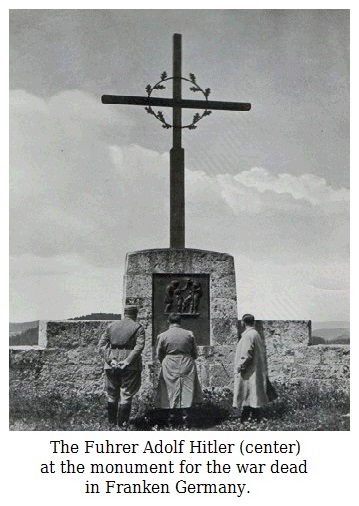
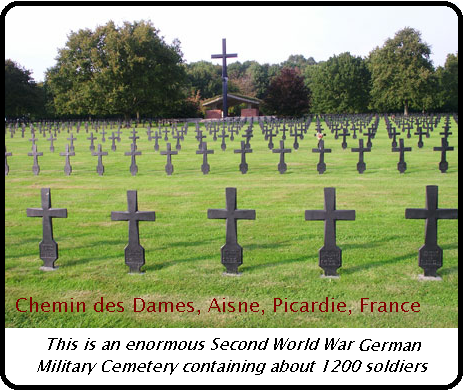
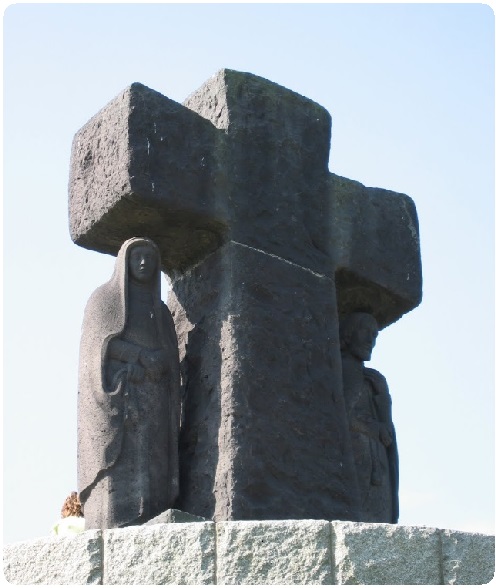
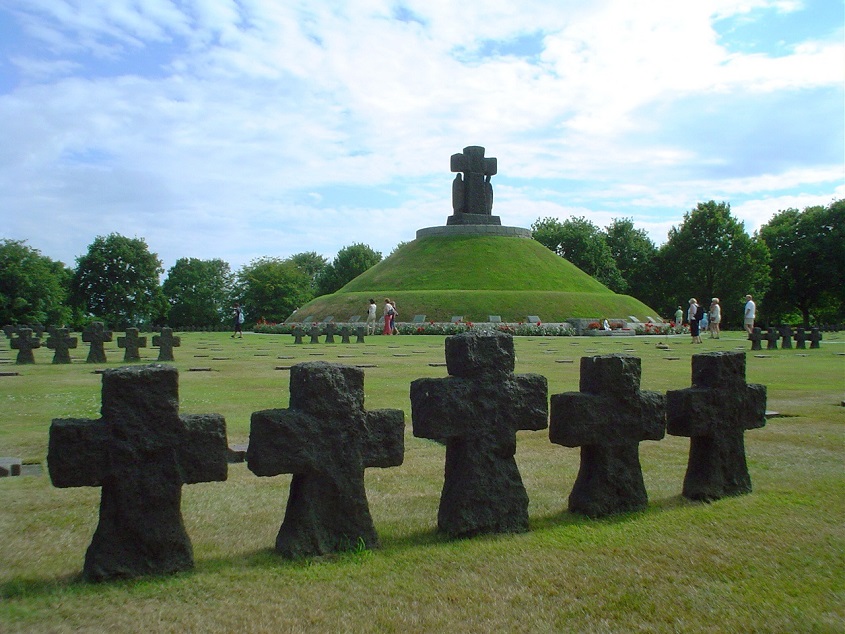
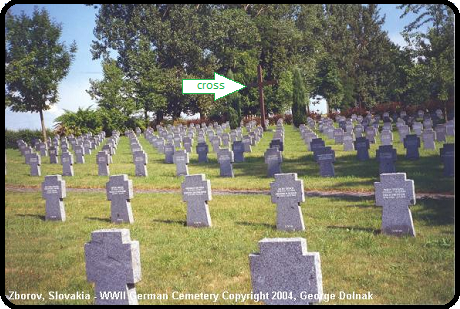
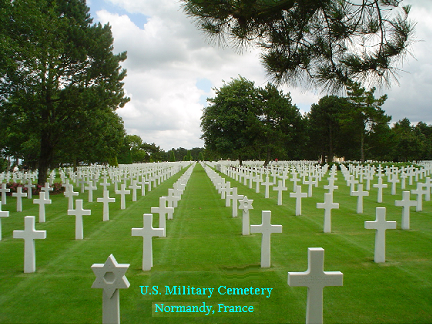
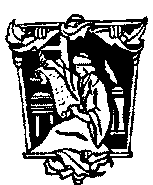 this question: "Teacher, what does a man need to do to live forever in heaven?" Jesus replied, "What does Moses' law say about it?" "It says," he replied, "that you must love the Lord your God with all your heart, and with all your soul, and with all your strength, and with all your mind. And you must love your neighbor just as much as you love yourself." "Right!" Jesus told him. "Do this and you shall live!"
this question: "Teacher, what does a man need to do to live forever in heaven?" Jesus replied, "What does Moses' law say about it?" "It says," he replied, "that you must love the Lord your God with all your heart, and with all your soul, and with all your strength, and with all your mind. And you must love your neighbor just as much as you love yourself." "Right!" Jesus told him. "Do this and you shall live!"
 The great reformer, Martin Luther, wasn't always an opponent of war, so it was probably late in his life that he wrote: –"War is the greatest plague that can afflict humanity; it destroys religions, it destroys states, it destroys families. Any scourge is preferable to it."
The great reformer, Martin Luther, wasn't always an opponent of war, so it was probably late in his life that he wrote: –"War is the greatest plague that can afflict humanity; it destroys religions, it destroys states, it destroys families. Any scourge is preferable to it."
